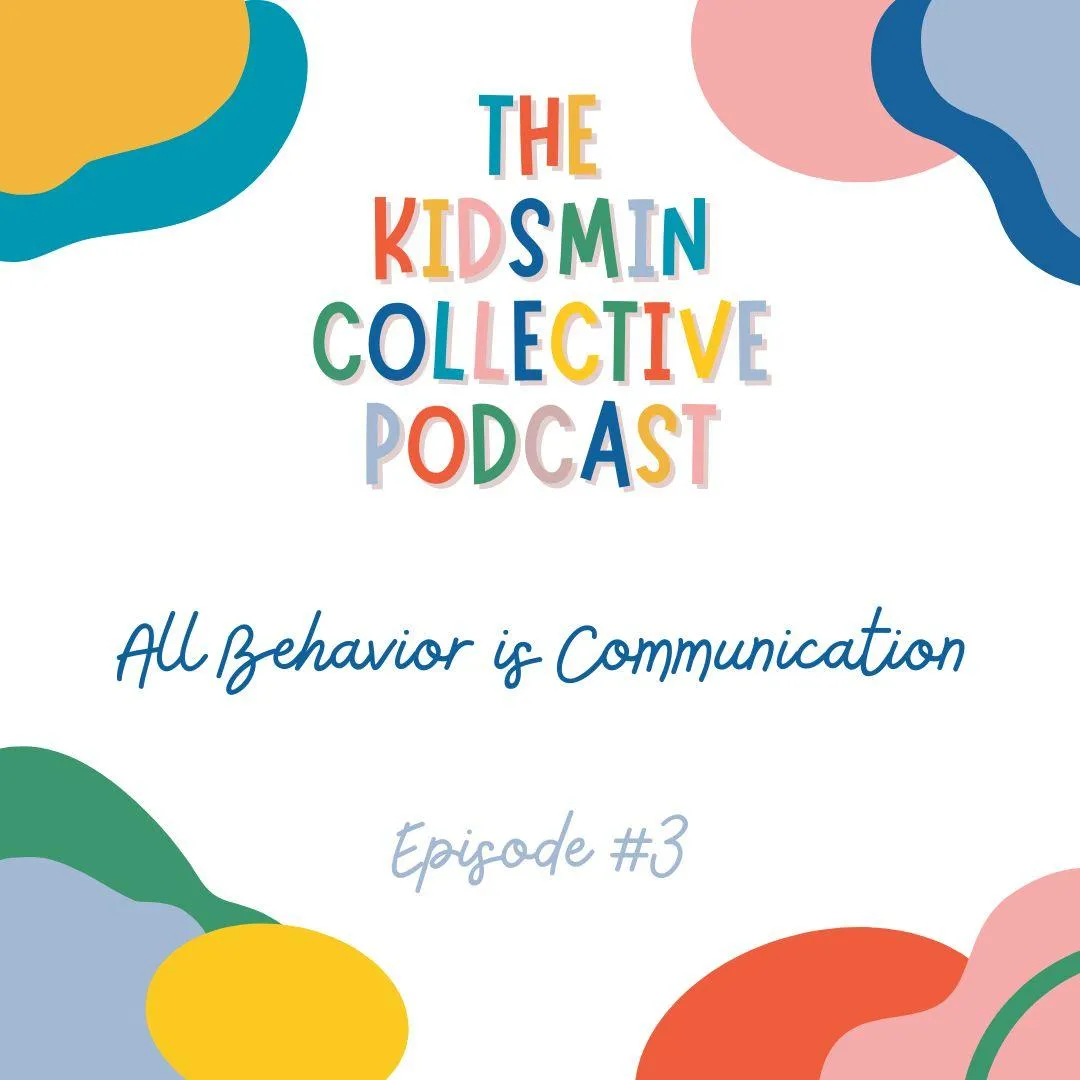
Episode #3 All Behavior is Communication
In the busy world of children’s ministry, we often find ourselves responding to what kids do rather than asking why they do it. I get it. Things are hectic in the middle of a Sunday morning, often you have volunteers leading the charge with kiddos, and you are trying to be present in 7 places at once. But here’s a critical truth that can reframe your entire approach: All behavior is communication.
Whether a child is two or twelve, every action—from tantrums to withdrawal to wild, silly outbursts—is saying something. What if, instead of managing behavior, we started listening to it?
A Shift from Discipline to Discovery
For children—especially young ones or those with special needs or trauma—they often don't have the words to express their feelings and needs. Even in elementary-aged kiddos, we see them wrestling with communicating their feelings and emotions. Often they simply don't have the skillset to name their feelings and communicate why they feel the way they do. So instead, they act. A toddler might hit because they don’t know how to ask for a toy. A chatty 10-year-old might be signaling anxiety, not mischief.
When we stop to ask, “What is this child trying to tell me?” we begin to shift from discipline to discovery. This shift doesn't mean letting disruptive behavior slide. It means responding with compassionate curiosity rather than frustration.
Try This:
When a child is acting out, ask:
What need might not be met right now?
What emotion is this child struggling to express?
Common Behaviors & What They Might Be Communicating
Understanding behavior as a language opens up powerful insight. Here are a few examples:
Tantrums: Could signal overstimulation, fatigue, or a need for control.
Silence or withdrawal: Might indicate fear, insecurity, or anxiety—often seen in new kids or those going through transitions.
Constant movement: May reflect sensory needs or simply excitement and a longing for connection.
Disruptiveness: Could stem from a lack of boundaries at home or unmet emotional needs.
Not every tantrum is deep-rooted, and not every chatty child is anxious. But every behavior is worth pausing to understand.
Relationships Are the Real Classroom
One of your best tools for interpreting behavior? Relationships. Get to know the kids, the families, and the patterns. When you know what’s typical, you’ll recognize what’s not.
I get it, you likely don't have the capacity to build a personal relationship with every family in your ministry, so empower your volunteers to build those bonds! When teachers understand kids, they become more than managers; they become heart shepherds.
As kidsmin leaders, we are not just behavior managers. We are shepherds of hearts.
Practical Tips for a Compassionate Classroom
Build routines: Kids crave predictability. A consistent class flow reduces anxiety.
Follow through: Empty threats undermine authority and trust. Make age-appropriate consequences clear and consistent.
Create calming spaces: A sensory-friendly corner with fidgets or quiet activities can help kids regulate.
Equip your team: Train volunteers to approach behavior with empathy and curiosity.
Partner with parents: A Monday call can open doors to deeper understanding and support.
Grace and the Gospel
Jesus didn’t shy away from brokenness—and neither should we. Kids need to know they are loved, even when they mess up. Grace doesn’t ignore behavior; it meets it with truth and love.
Let’s move from merely correcting behavior to connecting through it. Let’s ask what our kids are trying to say, and be the ministry leaders who answer with love.
Your Challenge This Week
Think of a child in your ministry who’s been struggling. Instead of asking, What’s wrong with them?—ask, What are they trying to tell me? Let curiosity lead the way.
🙋♀️ I’d love to hear your stories! Email me at [email protected] or hop over to ozarkministryconsulting.com to grab free resources or book a call. Let’s nurture leaders and impact generations—together.
